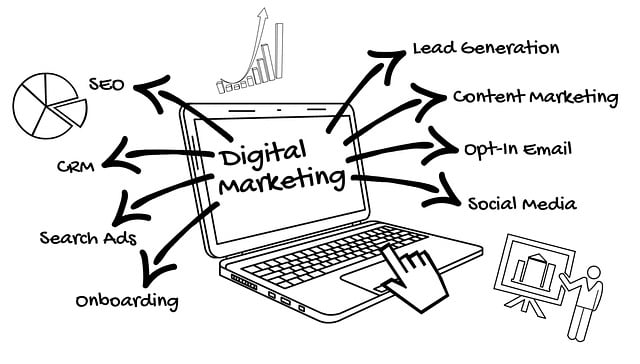AI business chatbot implementation significantly enhances customer engagement and internal operations across sectors, particularly in real estate and hospitality. Using natural language processing (NLP), these chatbots automate tasks like AI guest occupancy forecasting, improving efficiency, accuracy, and customer satisfaction while reducing costs. They adapt over time based on new data and trends, crucial for dynamic industries where preferences and market conditions evolve constantly. Effective deployment requires clear objectives, identifying KPIs, choosing a suitable platform with advanced NLP and machine learning capabilities, and seamless integration with property management systems to optimize forecasting and pricing.
“Revolutionize your business operations with AI chatbot implementation services, a game-changer in customer engagement. This article guides you through the transformative journey of integrating AI technology for enhanced efficiency. We explore the benefits of AI chatbots, focusing on their role in AI guest occupancy forecasting—a crucial aspect for hospitality businesses. Learn key considerations and follow our step-by-step deployment guide to ensure a successful AI chatbot service that improves operations and guest experiences.”
- Understanding AI Business Chatbot Implementation and Its Benefits
- Key Considerations for AI Guest Occupancy Forecasting Chatbots
- Step-by-Step Guide to Deploying an Effective AI Chatbot Service
Understanding AI Business Chatbot Implementation and Its Benefits

AI business chatbot implementation offers a transformative approach to customer engagement and internal operations, with significant benefits for organizations across various sectors. By integrating artificial intelligence into conversational interfaces, businesses can automate tasks such as guest occupancy forecasting, enhancing efficiency and accuracy in real estate and hospitality industries. These chatbots leverage natural language processing (NLP) to understand and respond to user queries, providing instant support and personalized interactions.
The implementation of AI chatbots streamlines processes by handling routine inquiries, allowing human agents to focus on more complex issues. This not only improves customer satisfaction through swift responses but also reduces operational costs. Moreover, these chatbots can learn and adapt over time, incorporating new data and trends to refine their predictions and recommendations, particularly in dynamic industries like hospitality where guest preferences and market conditions constantly evolve.
Key Considerations for AI Guest Occupancy Forecasting Chatbots

When implementing AI guest occupancy forecasting chatbots, several key considerations come into play. Firstly, data quality is paramount; accurate forecasts rely on robust historical data reflecting real market trends. This includes seamless integration with existing property management systems to access check-in/check-out records, room rates, and seasonal patterns. The chatbot should then employ advanced machine learning algorithms to analyze this data, identifying complex correlations that predict future occupancy levels accurately.
User experience is another vital aspect. Chatbots should be designed with intuitive interactions in mind, allowing hotel staff to quickly input parameters like dates and location preferences. Natural language processing enables users to communicate naturally, asking questions like “What’s the projected occupancy for next month?” or “How many rooms are available in July?”. Moreover, these chatbots must be adaptable, learning from new data inputs and evolving market dynamics to provide reliable forecasts over time.
Step-by-Step Guide to Deploying an Effective AI Chatbot Service

Implementing an AI business chatbot can be a game-changer for customer engagement and operational efficiency. Here’s a straightforward guide to deploying an effective AI chatbot service:
1. Define Your Objectives: Start by identifying your key performance indicators (KPIs) and setting clear goals. Are you aiming to improve guest satisfaction, enhance customer support, or predict occupancy rates using AI guest occupancy forecasting? A well-defined scope ensures that your chatbot addresses the most pressing needs of your business.
2. Choose the Right Platform: Select an AI chatbot platform that aligns with your industry and specific requirements. Look for features like natural language processing (NLP), machine learning capabilities, integration options, and customizability. Platforms offering advanced AI guest occupancy forecasting algorithms can significantly enhance your property management by predicting demand patterns and optimizing pricing.
AI business chatbot implementation services are transforming customer engagement and operational efficiency. By leveraging AI for guest occupancy forecasting, businesses can anticipate demand, optimize pricing, and maximize revenue. Following a structured deployment guide ensures successful integration of these intelligent chatbots, allowing organizations to stay competitive in the digital age. Remember that thoughtful considerations regarding user experience and data privacy are key to reaping the full benefits of AI chatbot implementation.
